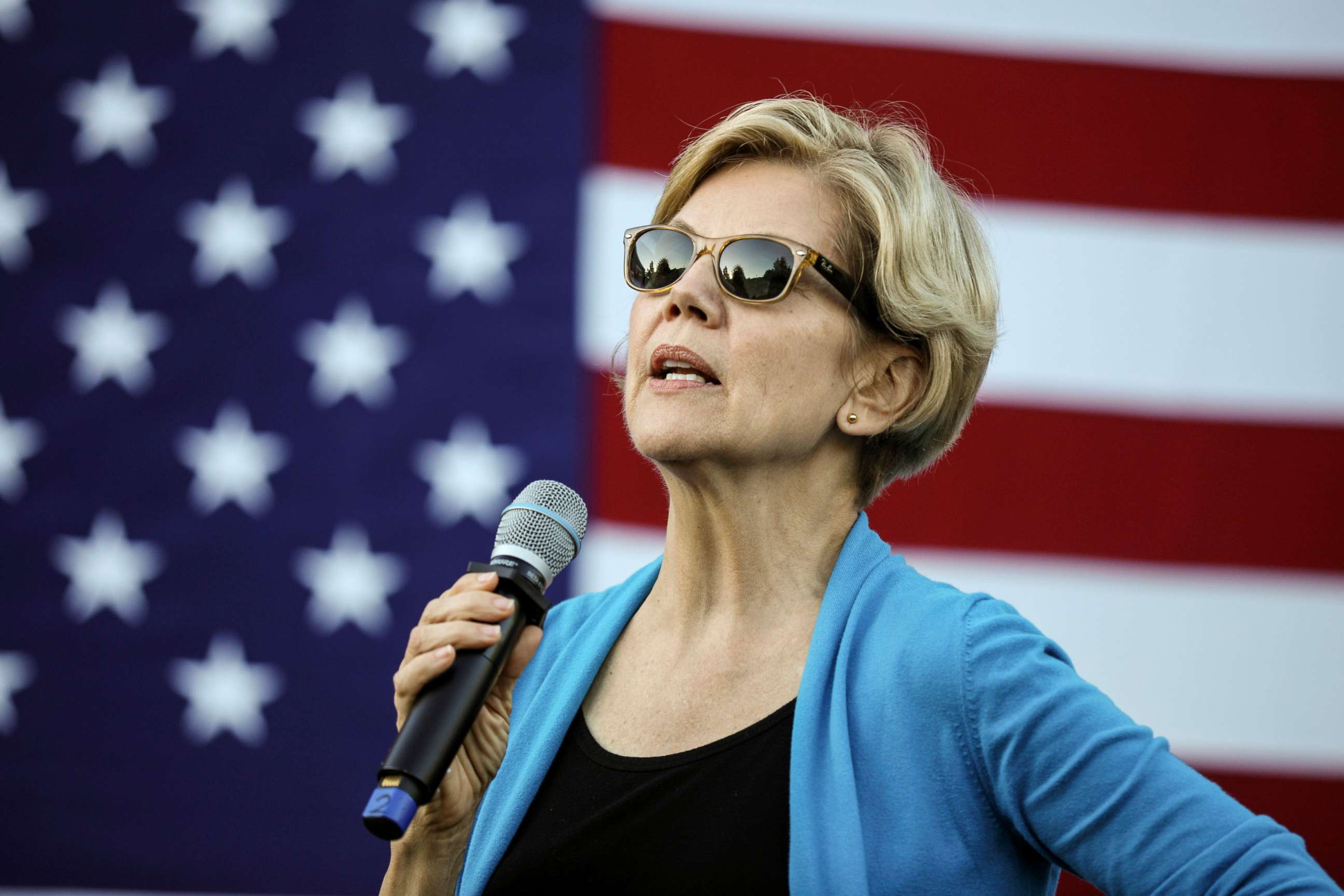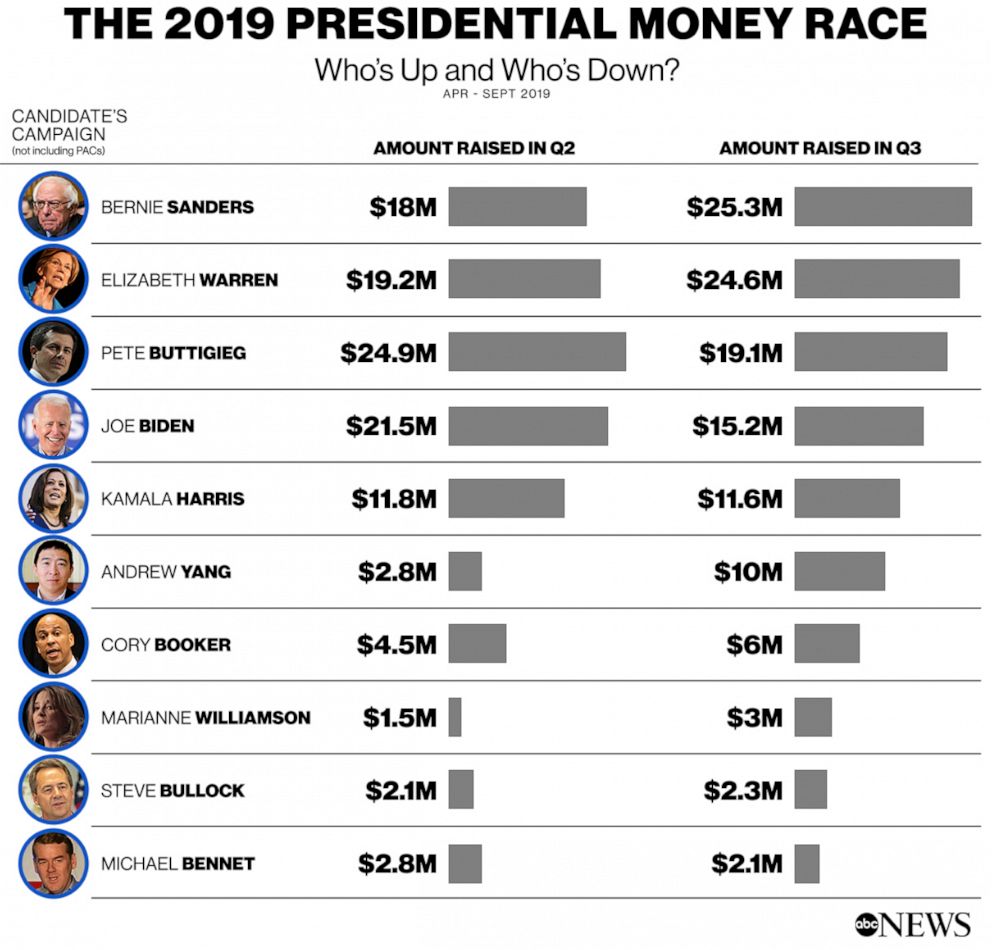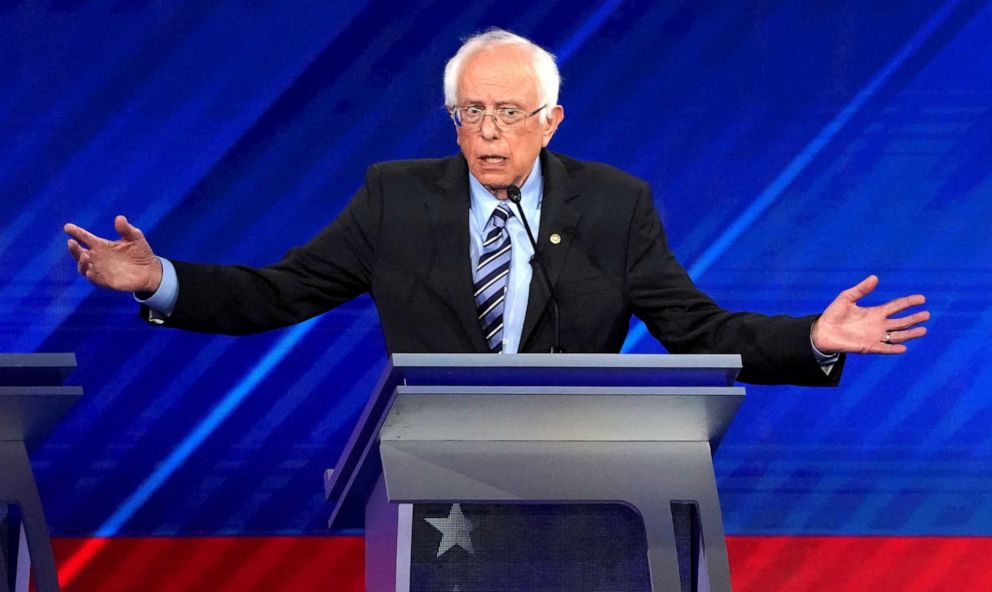Warren shifts stance on big money fundraisers in general election
She will maintain her pledge from the primary through to the general election.
Sen. Elizabeth Warren, a Democratic presidential candidate who recently proved herself as a top fundraiser in the 2020 race, said this week she will not stop rejecting PAC money or avoiding closed-door, high-dollar fundraisers beyond the Democratic primary and into the general election if she becomes the party’s nominee.
"I’m going to keep doing what I’m doing, and that is funding my campaign in the primary and in the general through small dollar donations," the Massachusetts lawmaker told reporters in South Carolina Wednesday afternoon. "I think this is critically important to building a grassroots movement and to rebuilding our democracy."
It marks a notable shift for Warren, who has spent most of 2019 campaigning on small-dollar support from grassroots donors and rejecting big-money fundraisers in the primary but has not pledged to keep up that fundraising strategy into the general election, when she could face the war chest of President Donald Trump, who has not made the same pledge. The only other candidate who has made the same pledge so far is Vermont Sen. Bernie Sanders.
Warren indicated her shift in stance on fundraising for the first time during an interview with CBS News, when she was asked if she would continue her pledge in the face of increasingly high fundraising from Trump. Warren previously indicated that she would only do so in the primary.
“Look, for me this is pretty straightforward,” Warren told CBS News. “Either you think democracy works and electing a president is all about going behind closed doors with bazillionaires and corporate executives and lobbyists and scooping up as much money as possible. Or you think it’s about grass-roots, let’s build this from the ground up.”
Though Warren continues to build her own war chest of nearly $50 million so far in the primary contest, her pledge immediately sparked concern from party insiders about the impact of her decision on the Democratic National Committee’s ability to fundraise for the entire party throughout the cycle.

The move could be harmful to down-ballot Democrats who need a fundraising powerhouse at the top of the ticket to help retake the Senate, hold their majority in the House, and capture other state and local level seats, Rufus Gifford, former President Barack Obama’s finance director for his 2012 reelection campaign suggested on Twitter.
“This is a colossally stupid decision not just for Democratic chances to win back the White House but for all Democrats up and down the ticket if she sticks to it,” Gifford, a former U.S. ambassador and congressional candidate, wrote on Twitter.
“A Presidential nominee is not just responsible for fundraising for his/her campaign. They are the de-facto head of the Democratic Party and for all 50 State Parties. The Democratic Party cannot raise the money they need without the candidate doing every he/she can,” he continued.
Warren's decision comes not only as the Democratic National Committee struggles to raise cash and sits in debt -- $7.3 million at the end of August -- but also as the Trump campaign and the Republican National Committee brought in a $125 million haul in the last three months.
In total, the two entities combined have raised more than $308 million so far this year, an RNC official told ABC News.

But Nina Turner, co-chair of Sanders' presidential campaign, welcomed Warren's shift in stance in an interview during ABC News' "Powerhouse Politics," saying she's "glad she's following the lead of" the Vermont senator.
She also drew a clear distinction between the two, stressing Sanders' consistencies in his rejection of high-dollar fundraisers through the end of the election cycle compared to Warren, who has "changed her narrative."
"What it points to is the fact that not only is she, but every single one of the presidential nominees to a degree whether they want to admit it or not, because of the courage and the consistency that Bernie Sanders has, they're all running on the Gospel According to Bernard Sanders is in some form or fashion," Turner said. "What it shows is that the power of his movement to challenge Democratic presidential candidates not to bow down at the trough of knockoff millionaires and billionaires and to take their campaigns to the people and raise money that way. So whether we're talking about raising money through the grassroots, I'm glad that Warren has seen the light."
It’s unclear if Sanders is planning on attending any future fundraisers for the DNC, but the former mayor of Burlington, who touts a massive grassroots army of 1.4 million donors who have raised more than $61 million so far this year, has consistently said he’ll stick to grassroots fundraising from the start to the end.
Warren will, however, continue to work with the Democratic National Committee -- a clarification Warren and her campaign was quick to affirm Wednesday.
"I’m not asking our state parties or our national party to unilaterally disarm," Warren said to reporters on Wednesday. "I’m going to help them raise money. In 2018, I gave away or helped raise about $11 million dollars for state parties and other candidates around the country"
Warren’s fundraising approach is about two things, Warren’s chief strategist Joe Rospars said on Twitter: “run her campaign on 100% grassroots donations” and “do whatever it takes to help the national, state, and local Democratic Party committees.”
“It's how she's going to win -- and help Democrats up and down the ballot win, too,” Rospars tweeted.
And in a statement, the campaign’s communications director Kristen Orthman said Warren would continue to attend fundraising events for the DNC, though the money would not go toward Warren’s own campaign.
"She currently attends events to raise money for the Democratic National Committee, state and local parties, and Democratic candidates,” the statement said. “When she is the nominee, she will continue to raise money and attend events that are open to the press to make sure the Democratic National Committee, state and local parties, and Democratic candidates everywhere have the resources not just to beat Donald Trump but also to win back Congress and state legislatures all across the country.”
Next week Warren is slated to act on that promise, headlining a gala hosted by a Democratic Party high-dollar fundraising committee led by former Democratic presidential nominee and Secretary of State Hillary Clinton and set to be attended by House Speaker Nancy Pelosi and former Vice President Joe Biden. Tickets to the event range from $2,500 to $50,000.
The gala is a part of the Women’s Leadership Forum’s two-day conference in mid-October. On the first night of the conference, Clinton is scheduled to host a separate closed-door dinner fundraiser at her home as part of the forum’s reception. It’s unclear if Warren will be at the dinner.
The money raised from the events will fund the DNC, without any dollars going to the candidates’ campaigns.
It isn’t the first time Warren will be attending a big-money fundraiser for the DNC. She appeared at the IWillVote Gala with New Jersey Sen. Cory Booker in San Francisco earlier this year.
Other presidential hopefuls have also actively raised money for the DNC throughout the cycle so far, including a chairman’s dinner with billionaire activist Tom Steyer in San Francisco and a “Cocktails and Conversations” event with former Housing and Urban Development Secretary Julian Castro planned for later this month in New York City.

ABC News' Sasha Pezenik contributed to this report.




